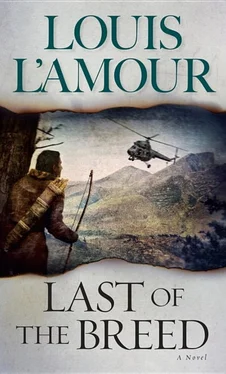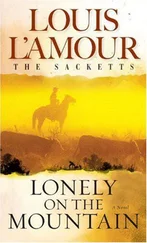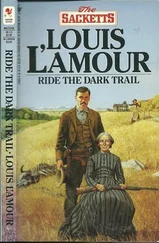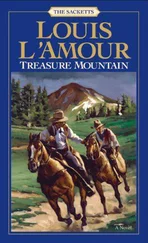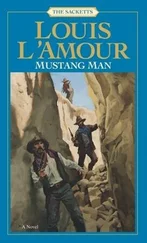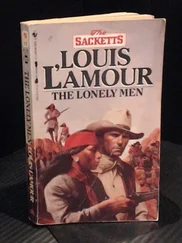Louis L'Amour - Last of the Breed
Здесь есть возможность читать онлайн «Louis L'Amour - Last of the Breed» весь текст электронной книги совершенно бесплатно (целиком полную версию без сокращений). В некоторых случаях можно слушать аудио, скачать через торрент в формате fb2 и присутствует краткое содержание. Город: New York, Год выпуска: 2010, ISBN: 2010, Издательство: Random House Publishing Group, Жанр: Триллер, Историческая проза, Приключения про индейцев, на английском языке. Описание произведения, (предисловие) а так же отзывы посетителей доступны на портале библиотеки ЛибКат.
- Название:Last of the Breed
- Автор:
- Издательство:Random House Publishing Group
- Жанр:
- Год:2010
- Город:New York
- ISBN:978-0-553-89935-1
- Рейтинг книги:3 / 5. Голосов: 1
-
Избранное:Добавить в избранное
- Отзывы:
-
Ваша оценка:
- 60
- 1
- 2
- 3
- 4
- 5
Last of the Breed: краткое содержание, описание и аннотация
Предлагаем к чтению аннотацию, описание, краткое содержание или предисловие (зависит от того, что написал сам автор книги «Last of the Breed»). Если вы не нашли необходимую информацию о книге — напишите в комментариях, мы постараемся отыскать её.
Last of the Breed — читать онлайн бесплатно полную книгу (весь текст) целиком
Ниже представлен текст книги, разбитый по страницам. Система сохранения места последней прочитанной страницы, позволяет с удобством читать онлайн бесплатно книгу «Last of the Breed», без необходимости каждый раз заново искать на чём Вы остановились. Поставьте закладку, и сможете в любой момент перейти на страницу, на которой закончили чтение.
Интервал:
Закладка:
Blucher had served in China under the name of Galin and had helped to train the Nationalist Chinese army at a time when the Nationalist Chinese were inviting help from Russia. Along with Michael Borodin he was thrown out of China, but later, in an undeclared war against the Japanese, he defeated them in one of the greatest tank battles ever fought.
General Zamatev, hoping to stay as far from Stalin’s attention as possible, had volunteered to serve in Siberia and remained there. He had, however, kept many old friendships, and not a few of them had aided the rise of Arkady Zamatev.
Colonel Zamatev was under no delusion. He knew peace was an illusory thing, something that hovered on a distant horizon, for which all men wished but which had only a small chance of realization as long as men remained what they were. There was now no declared war between the Soviet Union and anyone else, but there was war nonetheless, a bitter, ruthless war for military and communication advantages, and he was in the front line of that war and planned to remain there.
That he had already been considered for promotion, he knew. If he failed with Pennington and Makatozi, that promotion would never come about, or not for many years. He was thirty-five and hoped to be a field marshal by the time he was fifty. What else remained to be seen.
Pennington might never come over to the Soviets. That whatever he knew about chemical warfare would be his, Zamatev was sure. Pennington could not be forced to join the Soviets, but he could be made to talk. There were drugs that would take care of that, as well as a few time-worn and less gentle methods.
Pennington, however, was of much less importance than the American. Makatozi could not be allowed to escape.
Zamatev reviewed what had been done. The troops along the border had been alerted, as had police officials throughout the Trans-Baikal, especially in Chita, Nerchinsk, and such villages as Romanovka, Bagdarin, Vitimkon, and Vershina.
Airfields had been alerted as well, for the escaped prisoner was a flyer who might attempt to steal a plane.
Now he could do little but await the American’s capture.
Zamatev walked outside. It was one of those bright, clear days so common in the Trans-Baikal. He looked eastward toward the mountains, where one peak was almost a mile high. That was rough country, not an easy way to travel, and so far as he was aware no paths crossed those mountains, but he had never explored widely outside the compound. He scowled impatiently, irritably. He should know the country better.
The telephone sounded and he turned quickly. Maybe they had him! Maybe—
It was Shepilov, KGB. “Is it true? There has been an escape?”
“From Siberia? That’s a joke.”
“But I heard—?”
So, already the word was out! Were there no secrets in this land?
“It is nothing,” he said, keeping his tone casual. “A minor difficulty, no more.”
Shepilov was in a sense his superior, but in another department. And Shepilov did not like him. He resented Zamatev’s friendships in Moscow, his influence in the higher reaches of command.
“If you need help—?”
“Thank you, but we will manage nicely.” He hung up the phone and sat back in his chair. He swore then, softly, bitterly. To have this happen now! Now, when all was going so well!
Who would dream that a man could go over the wire?
Tomorrow they would have him, tomorrow without fail.
For a moment he sat thinking, and then he lifted the phone again. He made three calls, mobilizing still stronger searching parties.
The bastard! Where had he gotten to? Why was he not already caught?
Tomorrow night there was a meeting he must attend, and surely he would be questioned, if only casually. His activities were little known, and talk about them was not welcomed, but there was a lively curiosity, and some, such as Shepilov, knew a little. Such a search as he had now instituted was sure to excite comment.
Irritably, Zamatev walked to the window, staring out at the low mountains. Despite his ambitions, which if realized would take him to Moscow, Zamatev loved Siberia, although sometimes it worried him that the manners were more casual here, that there was, or seemed to be, less respect. To get the technical people to come out here and stay they had to be accorded privileges as well as much higher pay, and this had brought innovators and thinkers, men and women whose ideas did not always agree with those expressed in Moscow. As yet there had been no trouble, nor did Zamatev believe such people would go too far, yet a bridle must be put upon some of the free thinking.
His thoughts returned to the American. Where could he go? What would he do? He must have food. He would need warmer clothing.
He would steal. But from whom? Some isolated miner, trapper, or scientific station? A theft would draw an immediate report, and then they could concentrate their search.
Zamatev walked back to his table and sat down heavily. Soon, they must have him soon. It was impossible for him to remain unseen.
Why did the telephone not ring?
Some fifty miles away, not far from where the Tsipa River flowed into the Kalar, Joe Mack was huddled in a thick grove of mixed Japanese stone pine and larch watching a shack built against a cliff. Two men lived there, and one of them had just started off with an empty backpack. He had taken a path to the south, and from the way he had waved good-bye he had expected to be gone for more than a few hours. He was probably going to town.
The other man watched him go; then, taking some tools, he went into the portal of a mine tunnel.
Joe Mack waited an instant longer, and then using a carefully plotted route he went down the slope, keeping under cover until within fifty feet of the house.
He waited, trying to breathe evenly. He must make the attempt, even at the risk of discovery. An instant he poised, then he was across the open space and into the house.
A quick glance around. Warm clothing on hooks. He reached under one coat and took a thick sweatshirt. Quickly to the shelves. Rows of canned goods. He selected a dozen cans, taking them from the front row and moving others into their place so their loss would not be detected. He made a sack out of the shirt and put the cans in it.
There was much here he could use, but he wasted no time. Another quick glance around.
A hunting knife! It was under a table, lying upon some chunks of firewood.
He caught it up, took a quick look, and was out of the door and across the open space. There he paused and glanced back. No one in sight. The earth was packed hard, and he believed he had left no tracks. Carrying his sack, he climbed higher. When he had reached a point from which he could watch, he squatted on his heels and opened the first can.
Fish, of a kind he did not know. He had not eaten in two days so he ate with care. A bit, a nibble, then a bite. He drank a little of the oil in the can. Then he waited, but his stomach did not react. After a while he ate a little more, then drank from a trickle of water running from a crack in the rock. Crawling under some fallen boughs, he slept.
In the first light of morning, he finished the fish, then began to study the river. From where he sat he could see that the river he had been following flowed into a larger stream that flowed off to the northeast.
Putting the remaining cans in his pockets and inside his shirt, he donned the heavy sweatshirt. Then keeping under cover he went down the mountain to the river.
It was the Tsipa, but this he did not know. It was a river, and he crouched in the willows along the bank and watched it.
No boats, no travel, nothing.
For a half hour he waited, picking out the log he would use to cross.
When enough time had passed he went into the water and pushed off. The stream was not wide, but crossing was slow. Then, suddenly, he heard the put-put of a small motor!
Читать дальшеИнтервал:
Закладка:
Похожие книги на «Last of the Breed»
Представляем Вашему вниманию похожие книги на «Last of the Breed» списком для выбора. Мы отобрали схожую по названию и смыслу литературу в надежде предоставить читателям больше вариантов отыскать новые, интересные, ещё непрочитанные произведения.
Обсуждение, отзывы о книге «Last of the Breed» и просто собственные мнения читателей. Оставьте ваши комментарии, напишите, что Вы думаете о произведении, его смысле или главных героях. Укажите что конкретно понравилось, а что нет, и почему Вы так считаете.
